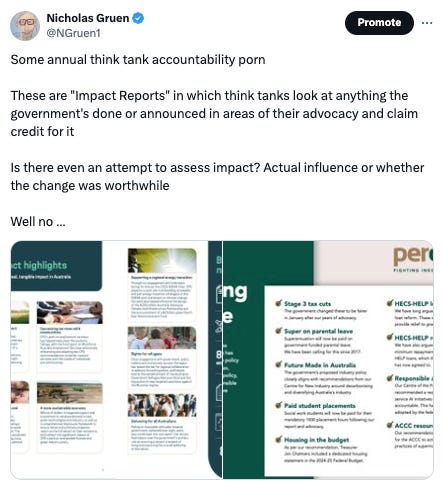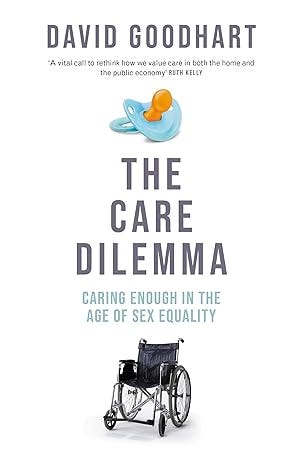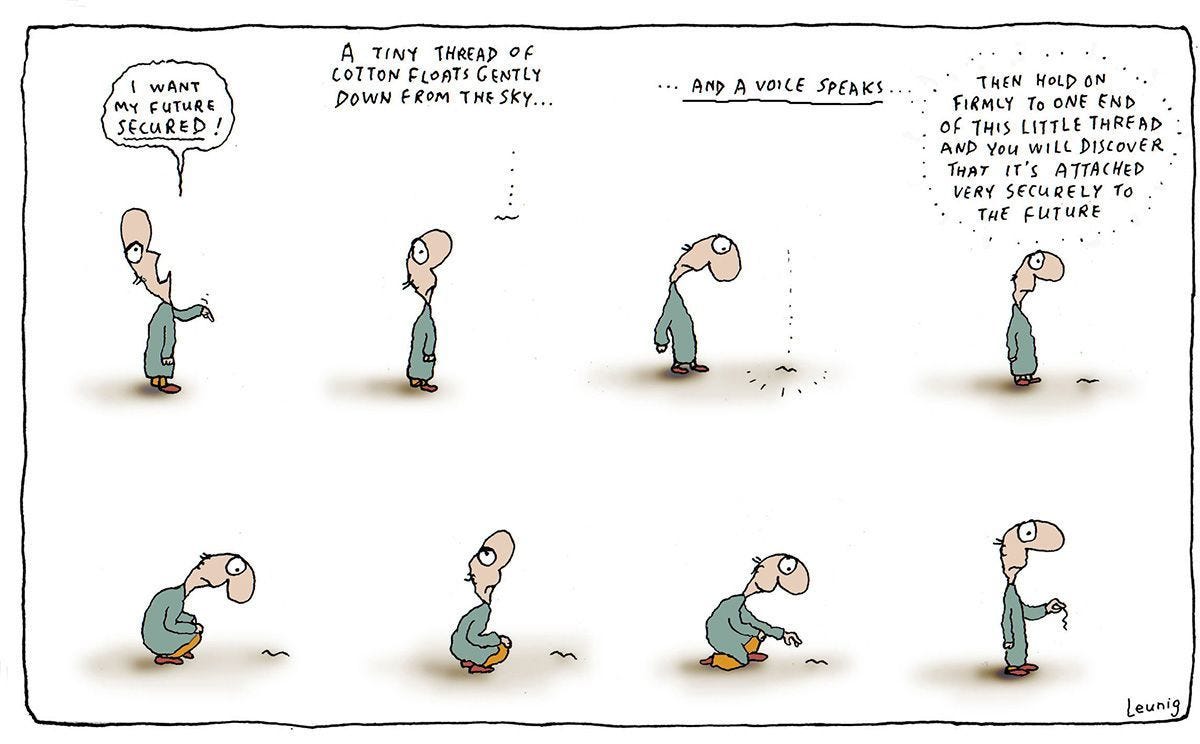Awakening our better angels in Kilkenny
Well folks, I’ve been hard at work producing a series of short videos proposing a new form of activism to heal our democratic system. I explained the idea in my presentation in London last year and in this accompanying essay. But I did a session on it at Kilkenomics — the festival of economics and comedy I attend whenever I can. The session begins with the second last video of the series. It was introduced by the MC, a wonderful Irish comedian and very nice guy called Colm O’Regan, but the recording starts with the video, and then a panel comes on. The session was the final show in this year’s festival, and so, by tradition is on the theme of Reasons to be Cheerful. Brian Eno, who wrote the original music for the videos was in the audience — visiting a mate of his in Ireland who also turned up. When I caught up with him later in the pub he said “I spend my time looking for a main melody and a simple idea. I haven’t encountered a simple idea in a while, but I did tonight.” I’ll drink to that.
Blessed are the cheesemakers
What just happened: Robert Manne
Here’s an edited version of a post from Robert Manne, who sees the Trump victory as a turning back from the Cultural Revolution of the 1960s. He seems to be saying that the victory is a victory for those seeking to set the clock back on equality for women, blacks and gay people. Horrible as electing Trump is, I don’t think he’s right. My own reaction to his analysis is below the article, and adapted from a comment I made on his post.
From the 1960s and onwards, a Cultural Revolution took place that challenged and in good part overturned the cultural values that had shaped all Western/Christian societies for hundreds, in some cases thousands of years.
This Antinomian Revolution is more fundamental than any previous revolution in the history of the West, for example the French Revolution, but somehow is overlooked in our analyses of contemporary history. … Eventually almost everywhere in the West the Antinomian Cultural Revolution triumphed, at least on balance.
Now anyone who refused to speak in the new terms was criticised harshly, even silenced. The characteristic means by which the dissenters were punished was the "pile-on" of the metropolitan media and/or the social media. …
Many people eventually supported or at least deferred to the new values of the Cultural Revolution, at least in public. Many however did not. These people began to be led by well-educated, often wealthy, conservative or reactionary dissidents, think Jordan Peterson or Steve Bannon.
The dissidents found a political language in which to express the resistance of those uneasy with or hostile to the new values of the Cultural Revolution. The first term used (in the 1990s) was "political correctness", then came "cancel culture" and "woke".
Two political armies silently massed that overlapped with and then gradually, in large part at least, replaced the old political armies based on class--capitalists and workers. These are the camps of the Cultural Revolution and the Cultural Counter-Revolution. …
In Australia, for example, the division between the cosmopolitans and the parochials helps to explain the decisive failure of the referenda for the republic and an Indigenous Voice.
As so often, however, it is the United States that has pioneered the new emerging political situation.
Just as enthusiasm for the new values of the Cultural Revolution is centered in the United States among the permanent and temporary members of the universities, especially the Ivy League universities, so is enthusiasm for the values of the Cultural Counter-Revolution centred in the rural or semi-rural or suburban counties throughout the United States. A supporter of Trump will hardly be found among the faculty at Yale or Harvard. A supporter of Harris will hardly be found in a rural community in Kansas.
Because of the events of November 5 2024, Donald Trump is now the leader of the Western Cultural Counter-Revolution; the hapless Kamala Harris finds herself in the position of the defeated, even humiliated, leader of the Western Cultural Revolution that is now, increasingly, throughout the West, under threat.
Me on Manne
However much I abhor Trump and his minions, enablers and thinkers like Bannon, almost all of them think of themselves as reacting against the excesses of the Cultural Revolution, rather than setting course for pre-Cultural Revolution values.
The core achievements of the Cultural Revolution are all largely safe in the hands of the Cultural Counter-Revolution.
The exceptions I can think of are access to abortion (which will only be seriously curtailed in some states) and the fact that the counter-revolution also contains crazies — old style racists and white supremacists. (But that's politics — just as the left contains Stalinists, Maoists and all kinds of riff-raff). The Counter-Revolution has also got all kinds of bad things associated with it from my point of view — from being hostile to climate action to being headed up by a criminal and the first President in history who does not respect the result of elections he loses.
But beyond that, the cultural-revolution is largely safe. There are no great resets on the rights of women, black or gay people. Just a new allergy to excesses of identity politics — which should be welcomed.
And that raises the question of what went wrong for the revolution.
I'd say two things — First its identity politics ended up weaponising discourse sufficiently that centrists somehow felt themselves unable to push back against extremists. Second, it obliterated class.
Nicola Sturgeon sent a rapist who was born a man to a woman's prison. She did so because of a slogan. “Trans women are women”. This made perfect sense as a general social sentiment — about how generally to behave towards trans women in most cases, but was nothing more than that. But, like deers in the headlights, progressive politicians couldn’t push back against this. Many found it hard to say what a woman was. Some still can't.
New circumlocutions, genuflexions and pieties increasingly infest corporate and bureaucratic life — as sent up in the TV program Utopia. These things matter because they completely hamstring our ability to discuss difficult subjects.
We can say that domestic violence hurts aboriginal women particularly, but not that aboriginal men are major perpetrators. I'm just reading a book now by David Goodhart documenting the social costs of family breakdown. He notes that children of single-parent families have substantially higher rates of crime and poverty than the average, but that that has been airbrushed out of National Society for the Prevention of Cruelty to Children stats so as not to stigmatise single-parent families. And on it goes.
Second the cultural revolutionaries somehow built a revolution that obliterated awareness of the unique privileges and injuries of class. Indeed, in so far as their instinctive response to those who disagreed with them was to brand them sexists, bigots, racists and xenophobes, the Cultural Revolution ended up hostile to what used to be called the working class, but might now be called the “less formally educated class”.
They jumped ship, even at some cost to their own material wellbeing — which was almost certainly so in the case of Brexit and I expect will be the case with Trump. Dignity and respect generally trump material wellbeing. Always have, always will.
A welcome return to the airwaves for Robert
Robert Manne on LNL again after a long hiatus related to his health.
Becoming Gay in Neoliberal Mexico
I stopped subscribing to Compact because of the preponderance of lame Pro(ish) Trump articles (with one or two interesting ones), but it still has some good things in it — which are mostly a bit off piste and so not behind a paywall. Like this one — it’s quite long and worth a click through if you’re interested.
Oh — and isn’t it amazing in our, in our endless preoccupation with what’s fair, how utterly class gets ignored.
As its title indicates, The Struggle to Be Gay—In Mexico, for Example is a book of paradoxes. Hardly any American reader would think of “gay” as a state of being that anyone would struggle to attain, in Mexico or anywhere else. Yet the anthropologist Roger Lancaster succeeds in dramatizing an often desperate striving, against obstacles of poverty, precarity, and prejudice, for the sense of status, security, and dignity that gay identity represents for many Mexicans. This struggle comes to life mainly in a long series of stories that the author heard or experienced over the course of two decades. …
The new gay persona—open, proud, and prosperous—was in many ways foreign to the ambiente. Some of Lancaster’s subjects found that they preferred the old ways, which were more fluid and flexible—not to mention less expensive. The customs of the ambiente had reflected a view of sexuality as defined by overlapping realms or spaces, rather than fixed human types, meaning that its denizens could pursue a myriad of tastes across a secretive social map. One man quoted in the book bemoans the new obsession with labels, declaring that he doesn’t care whether the men he blows identify as “gay” or “straight.”
Nonetheless, the gay identity has found fertile ground in Mexico. Lancaster describes young men in the Zona Rosa adopting the latest trends in clothes and speech, obtaining convincing designer knockoffs and turning to advice columns to keep up with new lingo like “polyamory.” The international gay world is hyper-conscious of image and status, urging participants to gauge their “value” on the dating “market,” in line with the neoliberal cultivation of “human capital.”
But a gayness yoked to branding and consumption is frustratingly out of reach for most of the Mexicans who strive for it. Urban working-class men who can’t afford trendy nightclub covers are sometimes relegated to the old category of puto (the male form of “whore,” often applied to men who play the receptive role in sex). Meanwhile, rural men who “come out” often find it too financially and emotionally costly to uproot themselves and move to the cities; living with family, they must keep their sexual lives on hold or limit them to furtive nocturnal outings. Even middle-class but unfashionable men are marginal to gay life. Lancaster recounts that a friend who works in a bar despite holding a sociology degree, lamented to him that “gayness [is] essentially a consumer culture”; when the author insists that the two of them are gay despite their lack of trendy taste, the friend corrects him: “No, Róger, you and I are homosexuals.” …
However, it would be foolish to think that class subversion was the purpose of the Zona Rosa or of any other queer space. Ironically, theorists who portray such spaces as fundamentally political agree with the city officials who suppressed the Zona Rosa in perceiving homosexuality as a threat to mainstream society. In contrast, Lancaster rightly insists that the point of sexual subcultures is not to subvert the social order, but to have fun—to go on adventures or take risks, to make merry or make friends, to find sexual liaisons or perhaps the love of your life. It is hard to see the point of gay relationships having legal sanction if there is no shared ground for them to meet in the first place: “I’d gladly give up gay marriage,” one of Lancaster’s subjects says, “if we could have the Zona back.” In this way, the struggle to be gay in Mexico is part of a global struggle over semi-public social spaces in a commercializing and atomizing world. …
Diego’s story, like many of the others told in The Struggle to Be Gay, demonstrates that no matter how liberated the queer world may be, it will continue to be an arena of unfulfilled longings. … Most of all, Diego longs for a loving long-term partner. He had, Lancaster recalls, one liaison with a French expatriate who appreciated his intelligence, engaged him in long conversations, happily took the active role in sex, and kissed him passionately and whispered French obscenities in his ear. Diego was enthralled—but broke off the relationship when the man refused to commit to monogamy. Years later, with his dating life largely over, Diego finds himself haunted by the short-lived romance …. Here, the mythical “coming out” has led into another closet, in which personal desires are hidden and subjected to the harsh demands of an economic and sexual “market.”
Perhaps The Struggle to Be Gay should not lead us to give up hope for Diego—but it should force us to take seriously the obstacles to happiness, both internal and external, that men like him face. Lancaster, for his part, clearly struggles with how to sum up the significance of all that he has learned in Mexico. He repeatedly contrasts his approach to queer life with that of other theorists; at times he seems to say that his book’s main intervention is to illustrate the constitutive role of class in gay life. Certainly, Lancaster is correct that social and financial capital shape the gay world and the lives of men within it in ways that are too little appreciated; time will tell whether the book succeeds in awakening the fields of anthropology and queer theory to the importance of class.
However, for the nonspecialist, the book’s more fundamental strength lies in Lancaster’s compassion, which any ordinary reader can perceive. This compassion underpins his insistence on viewing his subjects as fully-fledged people with rich inner lives and his concomitant refusal to reduce them to political props or setpieces of gender performance. The Struggle to Be Gay reveals that the particular dilemmas of the queer scene in a particular country revolve, after all, around matters of the heart.
A small SNL masterpiece
Superforecasters on the central bank board
Two cheers for this article on appointing members of the Reserve Bank Board. It’s written from the perspective that its somehow obvious that everyone on the Board should be an expert. I was always impressed by the contrary view put by Ted Evans in a speech he gave as Treasury Secretary (I think when I was working for Treasurer Dawkins — 1991-3). But it’s been hard to track down.
He defended the idea of a senior unionist and a business person on the Board as part of the social compact (and perhaps the Accord). He thought of it as a uniquely Australian idea, that the Board had expertise but also reached out to the major social partners, even though all those chosen were there to do their best in the collegial environment of the Board, not to be formal representatives of any vested interest.
The main problem with expertise is that, with a few exceptions, it comes hand in hand with an overestimate of what one knows and a underestimate of what others who are not as clever or as well credentialed as you might have to tell you. Of course union and businesses leadership don’t come with any guarantee of humility — far from it. Hence the case for superforecasters, as I proposed in the FT a while back — and as Huw McKay does here.
Now that the Senate has passed Treasurer Jim Chalmers’ reforms of the Reserve Bank board, the debate on the selection of new external board members can resume in earnest.
Recommendation 8.4 of the RBA review stated: “The Monetary Policy Board’s external members should be able to make a significant contribution to monetary policy setting through expertise in areas such as open-economy macroeconomics, the financial system, labour markets, or the supply side of the economy, and in the context of decision-making under uncertainty.” …
These recommendations sound straightforward on the surface, and they would represent considerable progress from the status quo. Even so, they also reveal a fundamental issue with the increasingly narrow way economists think about the world and a failure to learn from other disciplines, and do not address the unfortunate reality that adept economists can still be lousy forecasters.
The skills matrix is at the heart of the recommendation. The idea is clear. Assemble a panel of experts with complementary specialities within the relevant domain and manage succession through time so that the required ground is covered, collectively, at all times.
If that were the recommendation to reform the RBA’s analysis division, that would be ideal. But it is a low-ambition recommendation for the board, something of a least-worst option based on conventional thinking.
The board is not marking the staff’s homework with a red pen. It is the final clearing house for turning complexity into decision, and to fulfil that task it ideally needs to be deep and broad at every seat, rather than deep but narrow with a theoretical collective expertise across the sum of the parts. …
As Wharton professor Philip Tetlock (the renowned author of Superforecasting) summarises, the best forecasters tend towards a polymathic, deep and broad approach to knowledge that surmounts traditional disciplinary boundaries.…
So, if you have you met anyone like that, please pass their name to the treasurer.
I loved this interview: loved, loved loved!
David Marr’s interviewing is much more uneven than Philip Adams, but here he’s at his best with Helen Garner discussing her new book which is a homage to her grandson Ambrose’s footy. It’s lovely. And here’s a review of the book, sadly preoccupied with the fact that Garner’s interest in her grandson’s trevails as a man isn’t, well, shall we say ideologically savvy. So what? Can we please get a life.
Riveting
Mending marauding medical managerialism
I don’t like stereotypical defence of ‘the humanities’. Nor the idea that ‘the humanities’ are some complement to ‘the sciences’. I think that critical thinking is the key, and that that can’t be tied down to any subject (including philosophy) or to the humanities. That’s what I was getting at in this essay on the lack of critical thinking in economics.
But that’s me. You may think what we really need is medical humanities. Whether you do or not, I hope you’re interested as I am in the dilemmas of marauding medical managerialism and accordingly find this article interesting.
Several years ago, I was involved in a case that illuminates the difficult position many doctors today find themselves in. The patient was pregnant, close to delivery, and experiencing dangerous declines in her baby’s heart rate. She had been on a blood thinner, which kept me, the anesthesiologist, from placing an epidural in her back. She also had strange airway anatomy, which would make it a struggle to put her to sleep quickly if an emergency cesarean section became necessary. I advised the obstetrician to perform an elective cesarean section now, in advance, while we had good working conditions, and not to wait for an emergency, where time is of the essence, and where the delay needed to induce general anesthesia might seriously injure the baby.
The obstetrician grew quiet. She seemed to descend within herself, in that lonely region of stress and strife where people feel themselves to be in an untenable position. Several things worried her, she confessed. First, hospital management had already warned her that her high cesarean section rate made her an outlier among her colleagues, which put her job at risk. Second, the baby’s heart rate did not quite meet the criteria for when to perform a cesarean section. True, the current situation was unfamiliar and unforeseen; then again, she wondered, would hospital management, let alone the malpractice lawyers, accept that excuse? Third, she wondered how to persuade the patient to have an operation that her own rules seemed to advise against.
The changing work environment in which many doctors practice medicine leads to such moments of uncertainty—and all but guarantees that they will occur more frequently. As more doctors work for large companies, they have bosses they must answer to. Rules for how to practice medicine have multiplied exponentially, and their bureaucratic enforcement makes doctors afraid to violate them. With science forming the bulk of their medical and post-graduate education, doctors also feel bewildered when faced with questions that touch on the moral, the political, and the philosophical.
During the last fifty years, the field of medical humanities—particularly the subfields of bioethics, narrative medicine, and social justice—has tried to help doctors deal with some of these issues. But the new environment in which doctors work is so radically different from what it was a few decades ago that the field as now conceived has little to offer them. Worse, medical humanities veered off course during this same period, focusing on patients more than doctors, and making it even less relevant to doctors’ professional lives.
Doctors need a medical humanities that does more than just help them see health and disease through a patient’s eyes. They need one that helps them look into their own minds, that gives them models of order and clarity with which to understand their own thought processes, and that helps them maintain their own equilibrium when dealing with bosses and bureaucracies. …
A clinical humanities education must be tailored for time, given doctors’ proclivities, and entail reading not for the sake of learning, which many doctors dislike, nor for the sake of politics, which many doctors disagree on, but for the sake of life. Its goal must be to help doctors think past the walls in today’s work environment that hem them in. Four areas of study are essential.
The first area would focus on the relationship between mental health and scientific medicine. …
The second area might examine the scientific method, its role in extracting rules and algorithms from “big data,” its defects, and the tendency among physicians to take its limitations for the limitations of reality. …
The third area would explore the “good life.” In medicine, there are always trade-offs—risks and benefits—when treating people. People are different; everyone has his or her own opinion about lifestyle and even addictive behavior. Who decides the optimal balance? Science? The company? The uninformed patient? The doctor—and if so, on what basis? Clinical humanities will expose doctors to the history of such questions as well as the philosophies that have tried to answer them, thereby giving them a foundation other than personal bias.
The fourth area will help doctors answer the question, “What is a doctor?” The crisis that doctors face in their new working environment is ultimately a crisis of identity. Doctors no longer know who they are. They no longer know, for instance, if they are more than scientists or technicians. They no longer know if they are mere allies of patients or something more commanding. All is at sea in the sphere of their minds. Their doubts haunt them even when they make minor decisions. The situation will only grow worse with the next forward and downward change in medical practice: the coming of artificial intelligence. Clinical humanities will give doctors a better understanding of who they once were, are now, and might become, thereby stabilizing their sense of identity.
Doctors without the humanities live like blind people in a large room, aware only of what comes in contact with them and unable to see the general aspect of things. Situations appear before them in an unconnected and undirected way. Problems seem to come from nowhere and get resolved one way or another, but without the physicans' clear understanding of the reasons behind the available options. Clinical humanities seeks to restore doctors’ sight, to focus on their problems as much as on the problems of patients, and to give them more control over their professional lives in a world that has grown strange and unfamiliar to them.
Architects turn up in Northcote wanting to make a splash
More here.
(Not particularly) heaviosity half hour
From David Goodhart’s The Care Dilemma
Women’s autonomy is not in principle in conflict with the persis- tent majority ideals of mutual dependence, and pooling of resources, that a good couple relationship is built on. Mutual dependence informed the old Married Man’s Tax Allowance and the pooling of tax relief on mortgages (also phased out by Gordon Brown). Yet joint bank accounts are now so rare that I hesitated the other day when asked to pay into one – despite the fact that experiments have shown that joint accounts are associated with higher relationship security and satisfaction. We now seem to acknowledge partnership interdependence only retrospectively, in divorce settlements.*
Much of the charity sector, too, looks past the conventional family. A big children’s charity would regularly approach a friend of mine who worked for a Westminster think tank to offer significant sums for research, but would exclude anything that focused on marriage and the importance of family stability. The NSPCC used to publish data showing that child abuse was much less likely in married homes with two biological parents, but it stopped publishing the figure some years ago so as not to stigmatise stepfamilies.
This bias blinds our politicians to the pervasive role of family instability in so many areas of life. Think tanker and former policy adviser Edward Davies points out that many of Britain’s biggest social problems have family instability in the background and that ‘social policy gains are now actively reversed by the collapse in our home lives.’
Poverty: single parents are hugely over-represented in the poverty statistics and among food bank users, while two-parent families are largely absent from long-term poverty numbers. Poverty can also, of course, be a cause of family instability. But affluent children from broken homes with neglectful parenting are likely to underperform social class expectations, while poorer children from stable homes with good parenting are likely to outperform those expectations.
Housing and homelessness: according to the ONS, the main reason for experiencing housing problems was a breakdown in relationships, cited in almost half of all cases.
Education and young people: educational attainment is hugely dependent on people’s home and neighbourhood background. Those who experience family breakdown before the age of 18 are twice as likely to be homeless, get in trouble with the police, underachieve educationally and experience family breakdown themselves.33
Criminal justice: there are massively disproportionate levels of family breakdown among persistent offenders and gang members. However, according to the recent Farmer review, regular prison visits by family members can significantly reduce reoffending.
Racial inequality: attainment rates by race in education and the economy are strongly correlated with stable family structures, with Indian and Chinese families with high marriage rates at one end of the success spectrum and Black Caribbean and white working-class people with high rates of single parenthood and family instability at the other. The latter are the two groups most likely to be excluded from school.
Inequality and social mobility: all of the above contribute significantly to higher inequality, usually correlated with lower social mobil- ity. The high proportion of single-parent families in both the UK and the US is one reason for those countries having such relatively high inequality (along with outsized financial sectors).
While I was writing this chapter I read a New Statesman interview with Sam Freedman, the influential blogger and policy commentator, who in the course of 2023 produced a series of excoriating analyses of policy failure in welfare benefits, criminal justice, housing and more. He described some of the problems, as he sees it, in his specialist area of education: ‘Schools have a huge problem with mental health. They’ve got huge problems with children in poverty. We have too many kids who just aren’t able to learn because there are so many other issues going on. If you’re a teacher in a school in a lower-income area, you’re doing a lot of... knocking on people’s doors to try and get absent kids to come into school. You’re dealing with huge numbers of social services cases, and abuse cases. And that is so draining if what you wanted to do is be a teacher.’
Yet it did not occur to Freedman or his interviewer that many of the problems he describes, in education and elsewhere, are signifi- cantly connected to the weakening of family structures. A few days after reading the New Statesman article I met another prominent commentator I know, who had recently written a big piece on social policy that, similarly, failed to mention the word family. I asked him why not, and he replied that it was a ‘fraught’ topic and ‘I haven’t done any work on it’, which is code for ‘I don’t like the conclusions I might uncover.’
Post-2010 austerity has certainly not helped – cutting local authority funding by 40% from 2009 to 2019 – but the reflex of the political class, especially the centre-left section of it, is to blame everything on inadequate spending and look right through the family issues in front of our noses. Gordon Brown’s appeal in May 2024 to combat the increase in child poverty is another case in point. I used to spend a lot of time going to conferences on equality and social mobility; I don’t recall the issue of family structure ever being raised as a factor.
Yet for much of the social policy establishment family is, in a sense, always the background problem. The ability of successful families to pass on their success is the main transmission belt of inequality in the UK. This means that much of the work of the social state is trying to compensate for conditions originally established by the family, and it tends to do that not by helping less successful families look like more successful ones but by trying to take on the compensation role itself.
There are other reasons why family is a fraught topic. Modern liberal politics in its long campaign against real prejudice, particu- larly in relation to homosexuality, has often used the idea of the sanctity of the private realm to defend minorities. The idea that what happens behind closed doors is a sacred realm of freedom from the state has thus come to leave us disarmed in the face of family failure. But this is to confuse arguments about privacy with what are the proper boundaries of politics or of what society has a legitimate interest in.
It remains a fraught topic, too, because of an unhealthy political reflex identified by Sebastian Milbank as ‘whataboutmeism’. The reflex is triggered when praising something (such as the married, two-parent family) is seen as an attack on everything else (such as single-parent families or cohabiters). Sometimes praise for something does imply an attack on something else; back in the 1990s, when a Conservative politician made a speech about the family, it might well have implied hostility to single mothers. Today it rarely does.**
Clearly it is possible to both reject the stigmatisation of single- parent families and welcome the fact that the state supports them economically, while also wanting to use the levers of power to promote two-parent families, knowing that, on average, they produce better outcomes for children, something that a majority of single parents themselves acknowledge.†
This tendency to occlude the family has long infuriated Nobel Prize-winning economist James Heckman. ‘Nobody wants to talk about the family, and the family’s the whole story,’ he told an interviewer. ‘And it’s the whole story about a lot of social and economic issues.’
The ‘Heckman equation’ shows how disadvantaged children benefit most from early childhood interventions. But, crucially for Heckman, programmes must involve the parents, and especially mothers. He is concerned about inequality and lack of social mobility, but is frustrated that progressive-minded people refuse to see the central role that family plays in these outcomes. ‘What we have come to understand is that some of the major growth of inequality is not just to do... with hourly wage rates at the factory; it also has to do with the change in family structure in the larger society: more single-parent families,’ he told the interviewer.
Heckman is also an advocate of the importance of ‘soft skills’ or non-cognitive skills – the importance of self-control, conscientious- ness, concentration and so on – and claims that IQ differences account for only 5–6% of differences in lifetime earnings, far less than the character differences instilled by good parenting.
A similar position on the overwhelming importance of family is taken by John Goldthorpe, an Oxford academic sometimes described as the doyen of social mobility research. In his 2018 book Social Mobility and Education: Research, Politics and Policy, written with Erzsébet Bukodi, he argues that home background, and particularly the time that parents dedicate to their children, is far more important than schooling in determining life chances and social mobility.
To want the best for your children is one of the strongest human instincts and, especially since educational qualifications became a central determinant of life chances, affluent parents have invested heavily in their children’s cognitive development. Family is necessarily somewhat in tension with equality, something Goldthorpe ruefully acknowledges.‘Would we want to stop parents from reading bedtime stories or engaging in supper table debates? Of course not.’
Education can change lives and sometimes promote upward mobil- ity, but the claims made for it, including by organisations focusing on preschool education, can be exaggerated. Such organisations are right that the early years are often crucial in establishing patterns of both cognitive and character development, and there has recently been official concern about the growing proportion of children not developmentally ready for school aged four or five – over half in some areas. But the reflex is too often to want to place children in formal nursery settings, for as long as possible, rather than help mothers and fathers develop better parenting skills. Most parents would prefer support that leans in to family life, as the opinion data confirms.
* Even the British royal family have succumbed. In many tweets from the Princess of Wales about the 2023 ‘Together at Christmas’ carol service celebrating people who work with small children, the word mother never appeared.
** * Gavin Williamson, the former Conservative Education Secretary associated with the right wing of the party, gave a rare speech by a senior politician on the family in May 2021, focusing on the importance of fathers, in which he said, ‘Let me be clear, I am not saying that all families should be or need to be headed by two parents of the opposite sex. The stock image of Mum and Dad with 2.5 children is now far less relevant as a model.’ Nevertheless, one of the people involved in drafting the speech told me that the pro-family sentiments were diluted by political advisers for fear of offending single parents.
† More than half of single parents says it is important for children to grow up with both parents.





















